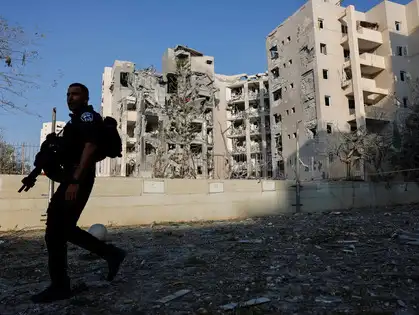Introduction
After nearly two weeks of relentless missile exchanges Israel Iran ceasefire, Israel and Iran have agreed to a ceasefire, raising cautious hope for an end to the spiraling conflict that had threatened to engulf the broader Middle East. The truce was brokered by US President Donald Trump, who announced the breakthrough late Monday night, followed by official statements from both Israel and Iran on Tuesday morning.

Trump Brokers Fragile Ceasefire
“The ceasefire is now in effect. Please do not violate it!” Trump wrote on his social media platform, hours after Iran launched what was described as a “last-minute” missile barrage against Israeli targets, particularly in Beersheba. The barrage marked the sixth wave of Iranian strikes since hostilities began, as both sides pushed the conflict to its brink before agreeing to pause hostilities.
Israeli Prime Minister Benjamin Netanyahu confirmed that his government had accepted Trump’s proposal, stating, “In light of the achievement of the objectives of the operation, and in full coordination with President Trump, Israel has agreed to the President’s proposal for a bilateral ceasefire.”
Final Iranian Strikes Before Truce
According to Iranian Foreign Minister Abbas Araghchi, Iran continued its strikes up until the agreed deadline of 07:30 GMT. “The military operations of our powerful Armed Forces to punish Israel for its aggression continued until the very last minute,” Araghchi posted on social media.
The final strikes killed several people in Beersheba,Israel Iran ceasefire according to Israeli emergency services. However, following the truce, Israeli authorities permitted residents to leave missile shelters, suggesting that for now, hostilities have paused.
A Fragile Peace
While the ceasefire is being cautiously welcomed, analysts warn that tensions remain extremely fragile. Both Israel and Iran have publicly vowed to retaliate if hostilities resume. Al Jazeera’s Tohid Asadi reported from Tehran that Israeli strikes on the capital had stopped by Tuesday, calling the calm “a promising indication about the prospect of the ceasefire.”
However, both sides remain on high alert as the situation could easily spiral out of control with any provocation.
Broader Regional Implications
This ceasefire comes after a dangerous escalation that saw the US bomb Iran’s nuclear facilities and Tehran retaliate by targeting the US military base at Al Udeid in Qatar. The conflict threatened not only regional stability but also drew sharp international criticism and warnings of a potential full-blown regional war Israel Iran ceasefire.
Earlier in the week, countries like Saudi Arabia, UAE, Qatar, Bahrain, and Kuwait strongly condemned Iran’s attacks, calling them violations of international law and sovereignty. Meanwhile, Russia and China criticized the US for its initial strikes on Iran’s nuclear sites, accusing Washington of escalating tensions.
Pressure Mounts on Netanyahu from Within
Domestically, the ceasefire has sparked renewed political debate in Israel. Opposition leader Yair Lapid called on Netanyahu to use this truce as an opportunity to end the prolonged war with Hamas in Gaza. “And now Gaza. It’s time to finish it there too. Bring back the hostages, end the war,” Lapid urged on social media.
Israel’s ongoing conflict with Hamas in Gaza has now entered its 20th month, with no end in sight, even as the crisis with Iran temporarily eases.
Global Calls for Long-Term Diplomacy
While the ceasefire may prevent immediate further bloodshed, international leaders and analysts stress that long-term peace requires addressing the deeper issues that fuel these periodic explosions of violence between Israel, Iran, and their allies.
“Without robust diplomacy and genuine political solutions, these ceasefires are only temporary pauses in a cycle of violence that continues to endanger millions across the Middle East,” said a senior UN official familiar with the ongoing negotiations.
Conclusion
The ceasefire brokered by President Trump brings temporary relief after nearly two weeks of intense fighting between Israel and Iran. However, given the entrenched hostilities, strategic mistrust, and unresolved regional disputes, experts caution that the situation remains precarious. Whether this fragile truce evolves into lasting peace depends on sustained diplomatic efforts from all sides involved.

Stay updated with the full Middle East conflict timeline here.
External Reference
Image
